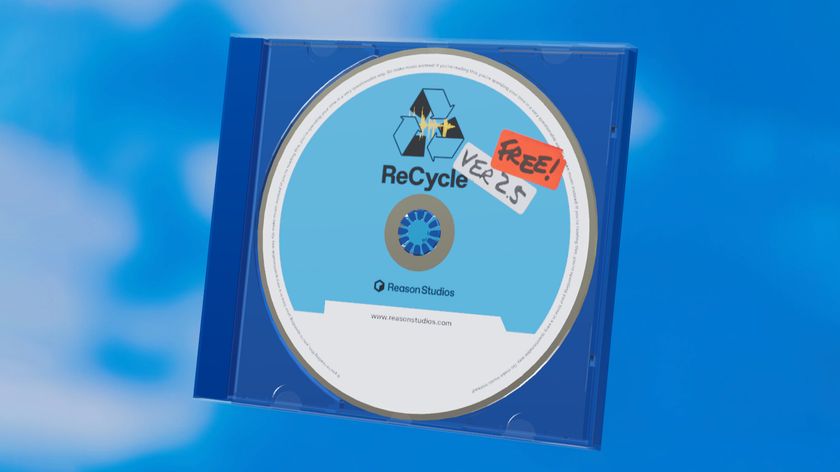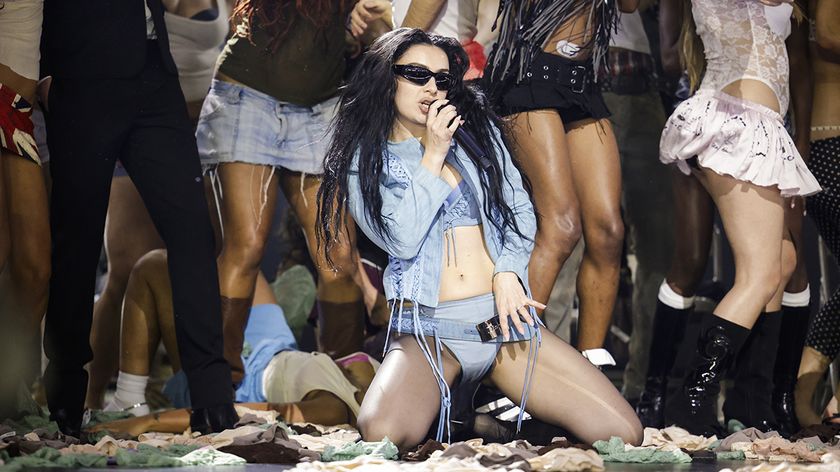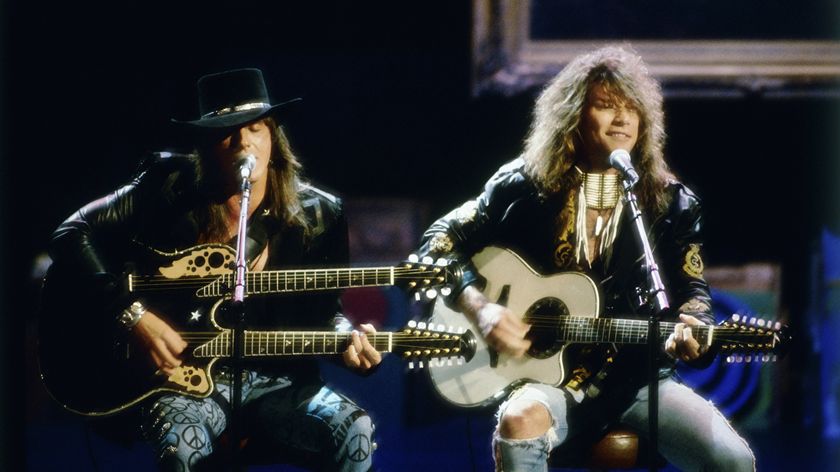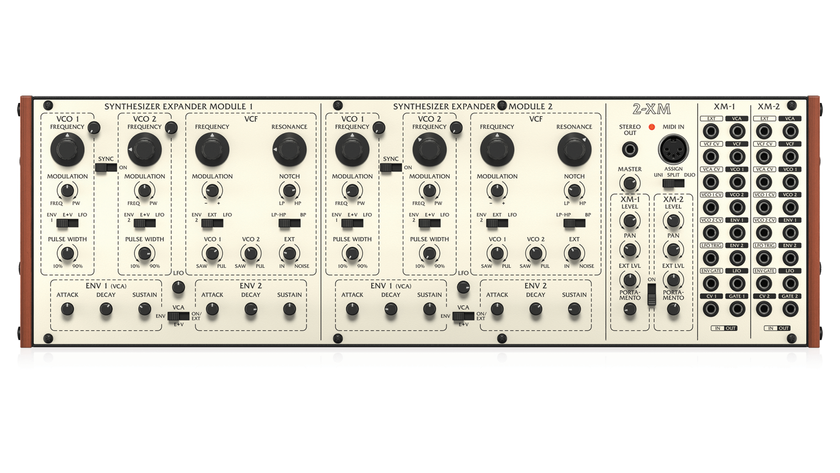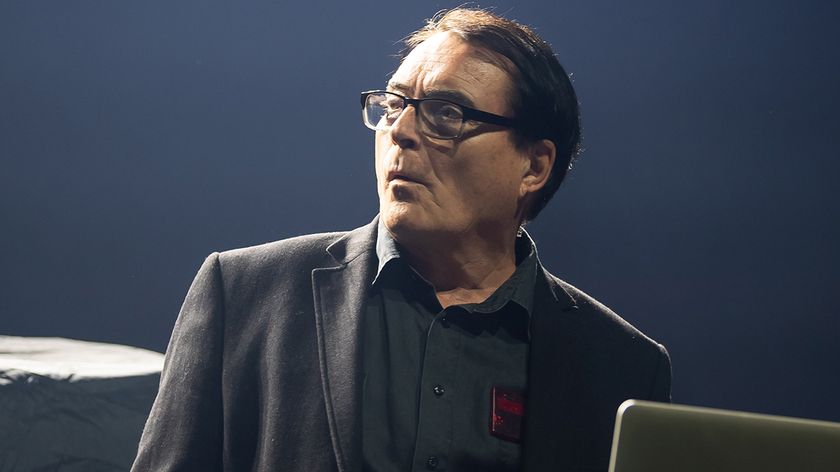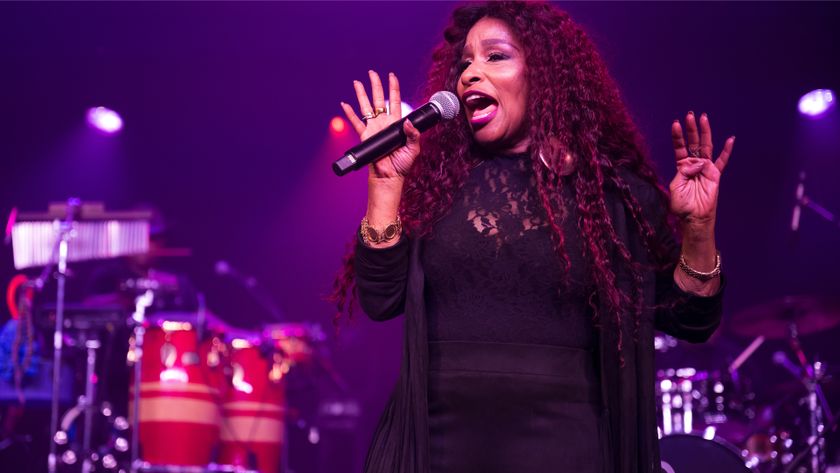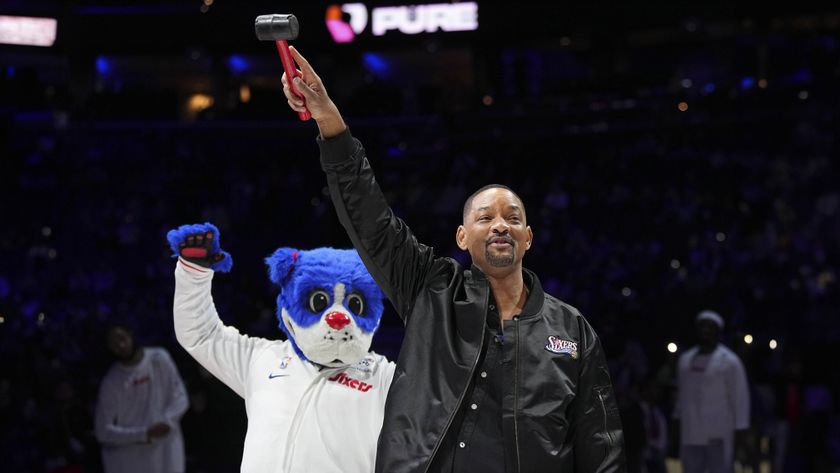Russian Circles guitarist talks new album Memorial
Mike Sullivan speaks to Total Guitar
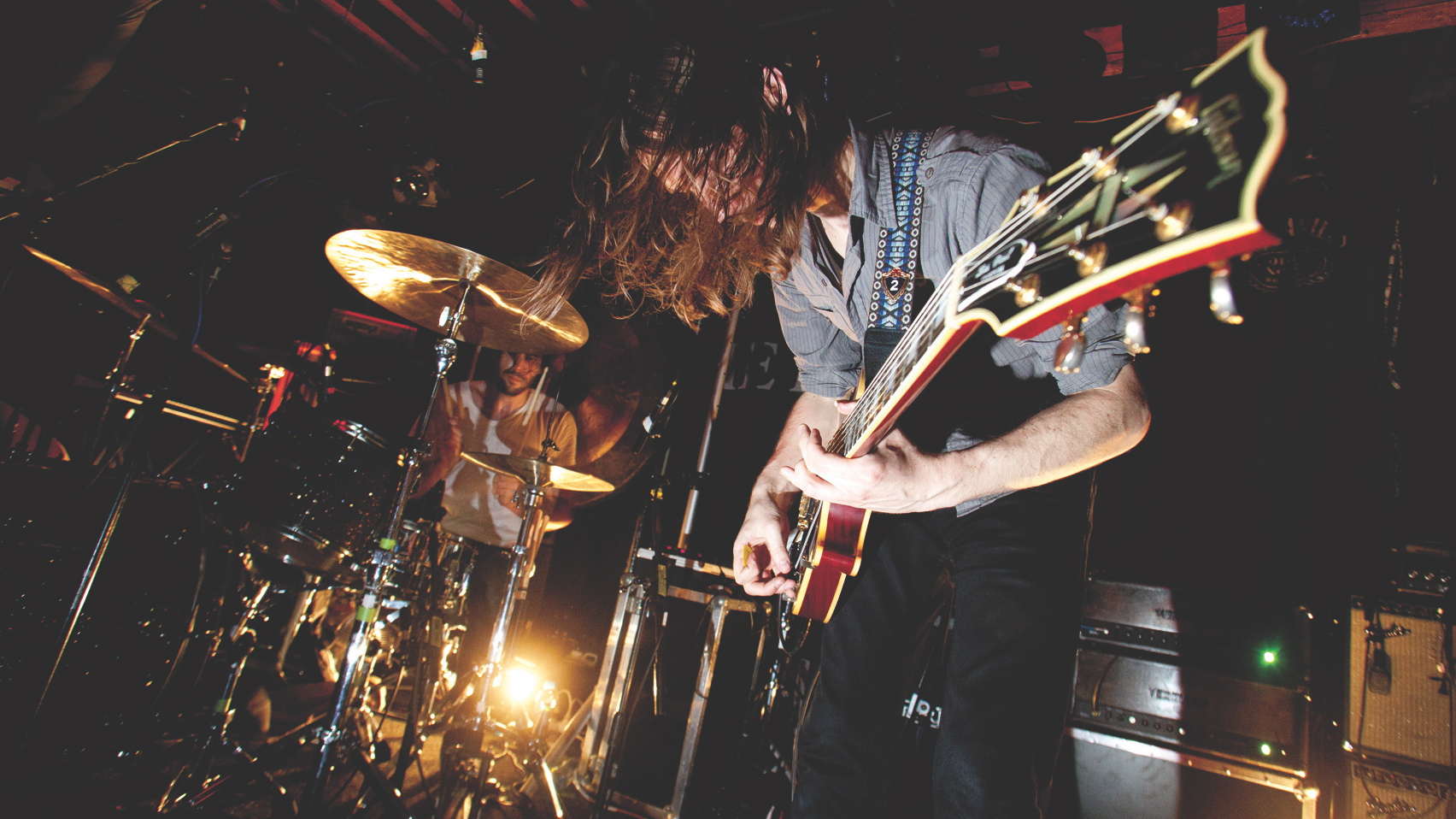
We've long been fans of Chicago instrumental trio Russian Circles, but their new album, Memorial, might just be our favourite release from them yet. Bleak, brutal and beautiful, it moves from blackened metal to haunting, ethereal layers on a compelling journey that offers a complete experience, rather than just a collection of strong songs.
It's one of our favourite albums of 2013, so naturally, we wanted to probe the creative mind of their amiable guitarist Mike Sullivan on everything from mini amps to fully collaborating with a vocalist.
Your last album, Empros, had its dark moments, but there are parts on Memorial that are a whole new shade of black for the band. What was the mindset for this album compared to its predecessor?
"Once we finished Empros we were terrified because we were worried how the album sounded with the fidelity limitations we were working with. While that album was written in the studio and changed around - and was my favourite record up to that point - we knew we could do better. We knew we could get better tones, better sounds, get our ideas across clearer. We thought that album was going to screw us; we were proud of the songs but we weren't sure whether it came out the way we wanted it to be.
"So before we even started recording [this time] we decided what we needed to do differently. So we just kept working on riffs, homing in on parts, individually and tonally, figuring out how we fitted into the band. It was a matter of taking a broader scope to everything in terms of what serves the song from each member. Also, a big part of it was that we tuned down to B on certain songs, and that really opened up some sonic potential that we couldn't tap into before. We were capturing ourselves with a more accurate feel. But that said, I'm really happy with Empros but there's no feeling of 'Oh s**t' like there was last time."
It feels like your most complete and cohesive album yet, especially with the same theme of music bookending the album. What was the process to achieve that?
"We tried to make it like that, so I'm glad it came across that way. It was a matter of seeing which songs fitted because we ended up dropping one song that didn't really fit in with the rest. We decided there was going to be a split point in the middle for the vinyl. So we said, 'Let's see it as side A and side B.' The songs are all individual pieces in there, but we wanted the first few songs and the latter ones to all work together. That didn't take much construction once we had an idea we were aware of how to transition things.
Get the MusicRadar Newsletter
Want all the hottest music and gear news, reviews, deals, features and more, direct to your inbox? Sign up here.
"We made sure we allowed some time at the end of recording for segues and transitions, so we had plenty of options and weren't left with a situation where we just cram one song into the next. For example, Memoriam and Memorial [the first and final album tracks] are in different keys, so they transition well into the next song or come out well from the one before. Trying different keys and tunings to see how it affects the listener - there was some thought put into that."
"Dissonance is more effective than a cool riff to me… it translates."
It's interesting listening back through your previous albums to this one. You seem to have moved from to focusing more on textures, discordance and huge, expansive soundscapes. What were you trying to achieve on this album?
"Effectiveness, I guess; I want to get the point across - something that really carries weight. By throwing all these neat changes in there you can lose the point of it all. We're still learning that on each album we find what translates well. Some of the tunes were based more on feel and rhythm than actual riffs. There's not that many riffs on the album, I'd say.
"We actually went in and pulled out some riffs because it felt like we were cramming stuff in there. Dissonance is more effective than a cool riff to me, because you can understand that. It translates. Okay, those notes don't work together but it elicits a feeling nevertheless. At the same time, we're conscious of having something for the listener to hold on to. It's a matter of balancing the ambience with that element to hang on to. Sometimes the busier, faster stuff just won't stick with you. It comes and goes."
Like the song 309 on Empros, there seems to be a black metal influence working its way in on this album's Deficit and Burial tracks, with the bleak atmospheres and the tremolo picking. Is black metal a genre that's had an impact on you as a player or is it coincidental?
"I can't say it's coincidental. There's definitely influence from that genre, for sure. But at the same time we'll look at it as, here's a black metal approach for guitar with a more hip-hop influenced drum line. We don't talk about it, but it ends up happening. We don't want to re-do something that people have done better."
You're sidestepping musical expectations associated with guitar parts like that…
"Exactly. So if this is an intense black metal-ish part, let's not got down that route intentionally. Let's try to see what the bass can do to offset that riff and give it more groove, that kind of thing. That's where the beauty of having three different brains working together comes in: 'If you're doing this, I'm going to intentionally try to do something completely different.' The people in the practice space next to us must hear us write awful songs before we start feeling that things work!
"The important thing is to always groove. Tap your feet. It's simple, but you have to ask yourself does the idea feel good to you? In black metal, so many bands get caught up being tough and they need to step back and say, 'Is that working?' It's a good riff but that just blew by me and I don't know what's going on now. I love to set up a groove and sit in it for a while, just bathe in it. Back with Karutrock it would be, 'this is the guitar line - this is going to be it for a few minutes.' Don't worry about what's next, just enjoy the ride."
It's interesting to hear how powerful restraint and delicacy can be on this record, too - like on 1777 when everything backs off for the fingerpicked arpeggio part…
"That's actually Brian [Cook, bassist] playing that, which was great because it came out of leftfield. It started out as a totally different song, unrecognisable to how it ended up on the studio recording. It was initially a folk song with chords in standard tuning with a little melody on top of it. We had a chat and Dave said, 'What if we took that main melody and made it a heavier song with more of an aggressive approach?' So I started putting other ideas in and I had the skeleton song worked out. Then Brian said he had a crazy fingerpicking part already and could transpose the key to make it work with the riff. So he spent some time with that and Dave and I fell in love with it.
"My brain can get so absorbed that I'm thinking too much about stuff and I miss the big picture. So he comes in with that and it's brilliant, it needed that. I would never have come up with that, so it was a welcome addition. Once he started doing that we opened the part up more and that ended up changing the structure of the song a little. The best thing to do as a musician is to shut up for a while. That was one of my goals with this record and I failed miserably, unfortunately [laughs]! I should shut up more: don't play! I've listened to Jesus Lizard records and Duane [Denison] would just cut out and you'd just hear the groove of the rhythm section and it just sounds so powerful - then he would come in again and it would sound so intense. They were a four-piece band, but they'd make it sound so much bigger than it actually was, without any spoke and mirrors. Just good writing. I still need to take my own advice, I suppose, but it is good to take a breath without being too minimalist. But we were conscious of that on this record."
What is Brian playing that part on?
"It's a baritone. There are a few songs, when we started tuning down, where there was room for something else in the mix. He had a baritone and on the first half of Deficit and for a good bit of 1777 it's on the baritone for him. He went nuts with the Taurus as well. He's got that Moog Taurus synth."
Like Rush used…
"Yes, if you're going to be a prog rock band why f**k around, I suppose! He fully embraced it. So there's that and tons of guitar drones hidden in there that ended up really giving us more freedom where that helps fills up the texture a bit, where you don't have to be as busy, per se, as you usually would be. Again, it lets the density of the music come to the fore more."
The low end is immense on the track Burial. What's the key behind that sound?
"There's no funny business there, I don't know what it is - maybe it's the nature of the tuning. It's funny because that song was written pretty quickly. Brian and Dave [Turncrantz, drummer] were just talking and I was horsing around with a riff quietly and they said, 'What is that?' It was one of those moments where we said, 'Let's jam with that' and it came together. There wasn't too much tweaking and then recording. It fell into place, but mixing was tough. One of the guitar tracks had chorus, so we brought that up to round it out, where you don't hear the chorus but somehow it affects the guitar tone. It was a matter of getting the bass to really have a weight to it. Not about hearing the notes."
So it's more about a presence?
"Exactly. And Brian was kind of apprehensive about that. We loved it: it sounds like a wall, and fills out the whole low end. I feel like it's a happy accident. We mixed it every way with the EQ to make that a little more articulate. But that was the missing piece - to have that blown out low end that was naturally there. It's a really simple song to us, but the marriage of the instruments happens to work out in a natural way. Chalk that one up to low end!"
It's interesting to see the extremes in the way that song came together relatively quickly in writing, but with others you will tear elements apart and analyse them…
"It is interesting, but we're our harshest critics and always fine-[tooth] comb every riff, every transition. But sometimes it's a case of, 'Let's not tinker with that too much because it's sounding pretty good.' It's a matter of knowing when to step away from it or decide, we need to work on this."
Cheyenne is the album's midpoint and sounds like the most layered piece of music you've ever done. What are the elements in there?
"I'll always record stuff and throw it into a [DigiTech] JamMan - I have one in the house so I can record loops and save them. It all came from messing around by myself. I had three or four parts stacked and a lot of it was filling with drones. There are a lot of drones on the record, getting a really ethereal kind of reverb'd washed out note. Just one note by itself and then occasionally bringing another note to harmonise with that.
"I'm giving away a trade secret now… but I used that Strymon Flint pedal. I picked that up a few weeks before recording and, man, that thing is my ace in the hole. It's so cool. A lot of that stuff sounds like synth, and there are strings on the record - don't get me wrong - but that's a versatile pedal. Even a hint of distortion will make stuff break up in an organic, cool way. You don't even need delay - with that pedal alone you could do a solo noise set! Robert Fripp secretly made that pedal years ago but didn't tell anybody about it.
"So a lot of that came from simple drones. Again, finding the right wrong note to make it uncomfortable. A lot of that stuff is tucked in the mix where you may not notice it, where t there's a little perversion of the melody with one wrong note being introduced here and there."
So the Strymon is a permanent resident on your pedalboard now?
"For sure. That and I picked up another one from Strymon called the El Capistan delay. That's another really versatile, cool pedal. Very musical. I can't say enough. I'm not endorsed by them or anything, but I'm looking forward to checking out other pedals by them."
Did you mainly use your Verellen amps in the studio?
"I did - the Meatsmoke and the Loucks. The Meatsmoke is my guy, I love it so much, but during tracking something didn't sound quite right. In mixing that was always the go-to amp just because of the way it sat with everything else in the mix. It's funny how your ears can deceive you. So I had those two and then oddly enough I had a Fender Bassman that was in the studio. It sounded great, I think it was late 60s. Right away we were dialling in pretty cool tones. So that was on there a lot and then Emperor brought by a head to recording for the hell of it. So we set that up. It was a really good amp, but not until mixing did we see its use.
"One thing we learned was that for a three-piece band that's doing what we're doing, it never hurts to record more tracks than you need. Three of the same take and then there are plenty of room mics to play with. Electrical [Audio Studios in Chicago] is a great studio like that, and we kept the volume reasonable so we could use those mics and it wasn't a blown up version of a direct line."
We did wonder how loud you played when tracking…
"The last record we did in that studio was [third album] Geneva and that room was on fire, it was so loud. But I don't know if there's much benefit of it. I like the guitar tone on there - but I don't know if it's clipping too hard or something, but it's not as pleasing to the ear. Turning up a tube amp has its benefit; you definitely need to reach a certain volume to optimise that tone. But at a certain point I find I'm doing more harm than good if I'm too loud in the studio."
There was a photo a Marshall micro amp on your Facebook pics from the studio. Was that a joke or did it end up on the record?
"That was on the last album and it's on this album, too. It's on Deficit quite a lot, actually. When the song changes to a chug halfway through, right before that there's a little black metal-type part and that was just my whole pedalboard through that amp. That amp got slammed with distortion pedals. There's something about that - again, it plays well in the mix. It's really difficult to get bad sounds in that studio oddly enough. You have to really to push it to get low-fidelity sounds and Greg [Norman, who engineered the record] is trained to make it sound as clear as possible. So meanwhile while he's doing that we're trying to make it sound as horrendous as possible. That was fun, because when we listened to it we knew that part of the song needed more of a three-dimensional tone."
It's good to see someone using one on a record!
"They're cool. It's funny, man, because you play it in a room and it sounds like an iPod and then you go to the control room and hear the playback and wonder, 'Are you f**king with me?!' We have all this costly gear and that sounds so good!"
What were your main guitars for tracking? Is the Cherry Les Paul Custom still a go-to?
"It was, and I now have the same guitar in black. I tried some guitars, but those always sounded the best. There's something about ebony with distortion; it always catches my ear. You can hear the articulation, you can hear the notes still. Pickups have a big part, but something about those guitars really works for me. I refuse to accept it and I'm always trying different guitars, but then I go back to them and think, 'What am I doing? I'm good to go.'
"They're back and forth between tunings so there's countless hours of painfully intonating guitars, which I should be way better at but am still p*ss poor at. So between every track I'm left screwing something around. But I love those guitars: big fat necks and they sustain for days. So they'll be around for years I think."
It's good to hear you using tapping again on Ethel…
"That was a funny song. I'm always laying on the riffs for the other guys - here's this one, here's that one. It went through variations: should it be minor, more melodic, or in a major key? It's the first song where it's all just tapping. It started as a tapping riff and there was no intention of making a whole song of just tapping, because that sounded like an awful idea. But we got an intro going that sounded like a nice little foundation, and then once the guitar comes in it's off to the races from there. Brian did a nice job of keeping it simple for that one and making the most of that riff without overplaying."
Especially the part where his bass takes a lead role in the mix…
"It's so simple, it doesn't need more. We ended up throwing some horns in, but it's one of those things where Brian isn't even trying. First off is best off sometimes. It had that sombre feel to it and that brought out the mood of the song. It's kind of a ballad. It's a fun song, because Dave is doing a shuffle that he's always loved playing as a huge Bonham fan. He couldn't be happier about that. But we look at the song now and say, 'How did that happen?!' It's one of those songs where you keep working at it and don't throw it away, don't throw that riff away."
The closing title track features Chelsea Wolfe's vocals. How did that collaboration come together?
"That was discussed last year, because we're huge fans of hers and we were on tour together. We didn't want to put her on the spot and feel pressured, but we said, 'Hey, if you want to do something… at the very least please sing on one of our songs,' as an open invitation. And we took that very seriously. We didn't want to have her sing on just any of our songs. Like, here's a mellow part and here she sings. It took a long time to make sure a song would suit her vocals and wasn't taking away from the vocal line, only enhancing it - which is kind of new ground for us for the most part. We went out of our way to make it more of a collaborative effort, even though she wasn't involved in the music, per se. We didn't want to take away from her at all, to give her room.
"I sent her an early demo, without drums or anything - a similar version of what you hear now. Four hours later she sent off an amazing version, I couldn't believe how beautiful it was. I can't respond to an email in four hours, let alone record a track and send it off to a friend! The lyrics didn't change that much since then, either. So that's what talent is like! We stayed in touch through demo'ing and sent the studio recording her way. That was a different approach for us, but it was fun to take on a different role, supporting someone."
Visit the official Russian Circles website

Rob is the Reviews Editor for GuitarWorld.com and MusicRadar guitars, so spends most of his waking hours (and beyond) thinking about and trying the latest gear while making sure our reviews team is giving you thorough and honest tests of it. He's worked for guitar mags and sites as a writer and editor for nearly 20 years but still winces at the thought of restringing anything with a Floyd Rose.
![Chris Hayes [left] wears a purple checked shirt and plays his 1957 Stratocaster in the studio; Michael J. Fox tears it up onstage as Marty McFly in the 1985 blockbuster Back To The Future.](https://cdn.mos.cms.futurecdn.net/nWZUSbFAwA6EqQdruLmXXh-840-80.jpg)
“We’re looking at the movie going, ‘Urgh! It’s kinda cheesy. I don’t know if this is going to work”: How Chris Hayes wrote Huey Lewis and the News’ Back To The Future hit Power Of Love in his pyjamas
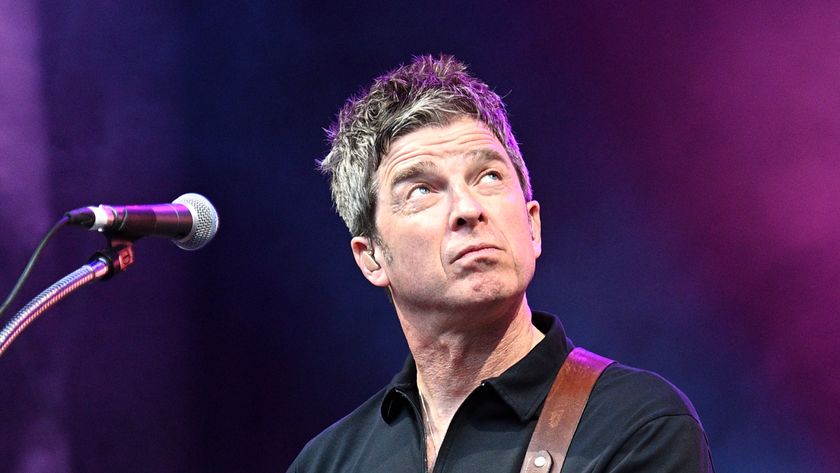
“I thought it’d be a big deal, but I was a bit taken aback by just how much of a big deal it was”: Noel Gallagher finally speaks about Oasis ticket chaos


